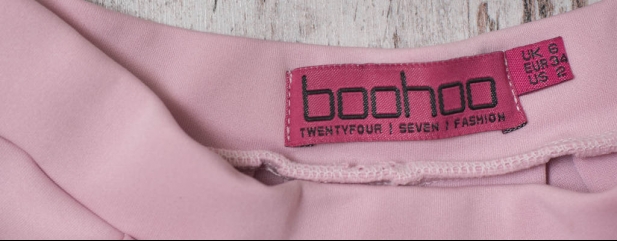Archived article
Please note that tax, investment, pension and ISA rules can change and the information and any views contained in this article may now be inaccurate.
Boohoo and ASOS out of fashion as shares slump

If online retailers were among the big winners of 2020, many have endured considerable bad luck in 2021 with share prices slumping across parts of the fast fashion sector.
Boohoo (BOO:AIM) and ASOS (ASC:AIM) have been seen their share prices fall by nearly 40% year to date.
Zara-owner Inditex and Next (NXT) have bucked the trend with double-digit share price gains. Quiz (QUIZ:AIM) has jumped by more than 100% year-to-date but that is from a low base, with its share price having previously been destroyed by endless profit warnings.
Fast fashion is among the many sectors encountering severe supply chain and cost issues, with online players facing the prospect of losing some of the market share that they secured last year when restrictions prevented physical shops from opening.
Recent first-half results from Boohoo were a case in point. Second quarter sales growth had slowed to 9% versus 32% in the previous quarter, substantially below analyst forecasts.
The company’s net cash positioned halved and profit margin guidance was lowered slightly as it pointed to UK customers returning more items, greater competition from the reopening of physical stores, consumer uncertainty and supply chain disruption which impacted its international deliveries.
Numis suggested that Boohoo may not have gone far enough with downgrades to guidance, raising ‘the prospect of further negative surprises’.
Analyst Simon Bowler added: ‘Boohoo is simultaneously on-boarding multiple brands, entering new categories, new business models, new geographical footprints and new pools of sourcing. This heightens execution risk, but also means the simplicity of the equity story has been lost.’

The challenge with international deliveries is one impacting the whole fast fashion space, with much of its supply coming on cargo containers from Asia, for which there is more limited availability and higher cost.
Warehouse rents are also going up, and greater returns of ‘wear once and send back’ party dresses is hurting profitability.
ASOS is set to announce its full year results on 14 October alongside a capital markets day where investment bank Berenberg believes investors will be most keen to hear the company’s plans to reaccelerate growth in the US.
H&M saw sales beat pre-pandemic levels and expectations in the June to August quarter, but incurred supply disruptions.
Inditex’s latest update benefited from a recovery in consumer demand. Its integrated approach to stock across its website and physical stores may have helped limit supply chain disruption.
Next recently said its trading was holding up well. The retailer suggested that might be down to its website offering wide choice, so it is easy for a customer to find alternatives if their desired product is unavailable.
Important information:
These articles are provided by Shares magazine which is published by AJ Bell Media, a part of AJ Bell. Shares is not written by AJ Bell.
Shares is provided for your general information and use and is not a personal recommendation to invest. It is not intended to be relied upon by you in making or not making any investment decisions. The investments referred to in these articles will not be suitable for all investors. If in doubt please seek appropriate independent financial advice.
Investors acting on the information in these articles do so at their own risk and AJ Bell Media and its staff do not accept liability for losses suffered by investors as a result of their investment decisions.

 magazine
magazine








